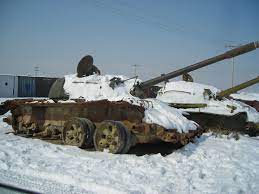8 September 2022
“If Winter Comes
can spring be far behind?”
By Neil Tidmarsh

Everyone agrees that it’s going to be a tough winter. Spiralling inflation. Rocketing energy prices. Economic recession. Strikes. Protests. All while those responsible for this misery – Putin, the Kremlin and the Russian army – may well be sighing with relief or even rubbing their hands with glee as winter weather closes the Ukraine conflict down into stalemate and gives them the chance to regroup and re-arm, financed by the profits from the sky-high price of energy which their crimes have precipitated.
But more than one voice in the news this week is suggesting that the misery may be short-lived, that conditions are likely to improve come the spring. If we can grit our teeth and get through the winter, then the worst of it could soon be over.
First of all, the price of Russian energy will become less and less relevant here as Europe and the West turn to other sources and might fall with the consequent drop in demand. “Europe will buy ever-diminishing amounts of Russian energy from next year” said Michael Clarke (visiting professor in defence studies at King’s College London and distinguished fellow at the Royal United Services Institute) in this week’s The Sunday Times. The EU has stopped buying Russian coal and will have phased out imports of Russian oil by the end of the year (Hungary excepted). The UK stopped importing Russian oil and gas this summer. Last week the G7 group announced its backing of a global price cap on Russian oil.
The Sunday Times’ economics editor David Smith pointed out that even “Europe’s dependence on Russian gas has declined, from 36% of gas imports by pipeline in 2021 to 12% so far in the second half of 2022”, while the consumption of gas is itself declining to the point where the target of the 15% reduction set by the European Commission is within sight. He also pointed out that the Netherlands is considering boosting production at its Groningen gas field, one of the world’s biggest, with reserves that could replace Russian imports.
Second, this year’s stratospheric energy prices were to a certain extent the result of panic-buying and overreaction in a volatile market and it looks as if the panic might be over. “The gas market has been driven by fear factors and speculation, not fundamentals” said David Smith. “History tells us markets can behave in this way only for so long before they re-engage with reality.” Prices have already fallen back from the soaring heights they reached in the first days of the war. The scramble to rapidly increase the amount of gas in storage “may have helped to keep prices high” but “by the winter, stores are on track to be 92% full, enough to cover the average winter drawdown two times over.”
Third, the serious economic damage caused by over-blown energy prices will itself inevitably lead to a drop in demand and so deflate them. The global recession looming on the horizon will itself drive energy prices down. Inflation is set to fall for the same reason.
With the possibility of a fall in the price of Russian coal, oil and even gas early next year, Michael Clarke says that “US and European leaders can take comfort from the knowledge that if they can get through this winter, the greater economic pressure will likely be on Putin from next year.”
That pressure could be serious and consequential. In the same paper, Dominic Lawson brought the reader’s attention to a book published in 2007, Collapse of an Empire: Lessons for Modern Russia, written by Yegor Gaidar, a ‘former Soviet apparatchik’ who became a prime minister under Boris Yeltsin. Gaidar argues that the biggest factor in the fall of Soviet Russia was its dependence on the high price of hydrocarbons. “The Soviets raised vast foreign currency borrowings on the basis that the oil price would stay high” but the debt began to suffocate Russia when the price of oil collapsed in the late 1980’s following Saudi Arabia’s fourfold increase in its oil production.
Lawson makes the point that “every one of Putin’s military adventures (the invasion of Georgia in 2008, the annexation of Crimea in 2014 and, most recently, the full-scale invasion of Ukraine) followed a period of surge or prolonged strength in the crude oil market”. It looks like Putin’s Russia’s war effort is as dependant on high energy prices as was Soviet Russia. A headline in today’s The Times announced “Putin’s energy war profits dwarf cost of Ukraine conflict” – but will he still be able to cover that cost if the price of Russian energy does indeed plummet in the new year? And what other crises might that bring in its wake for him? If he has ever read Yegor Gaidar’s book, then it seems that he has already forgotten those Lessons for Modern Russia.
Russian MP and state television presenter Yevgeny Popov recently said on social media “Europe depends on Russia, this needs to be understood. We have been politely warning ‘Hello, Anglo-Saxons, you will probably freeze to death soon’.” (He seems to be a bit confused about Europe’s ethnic make-up.) European leaders, including Liz Truss, are planning aid packages to help their economies and people through the tough times ahead; they might have trouble sustaining such aid for years rather than months, but it looks like they won’t have to. Government hand-outs (and a conscientious reduction in our domestic energy consumption) can see us through the winter at least, and then Mr Popov might be surprised to understand that Europe no longer depends on Russia and is still very much alive.


